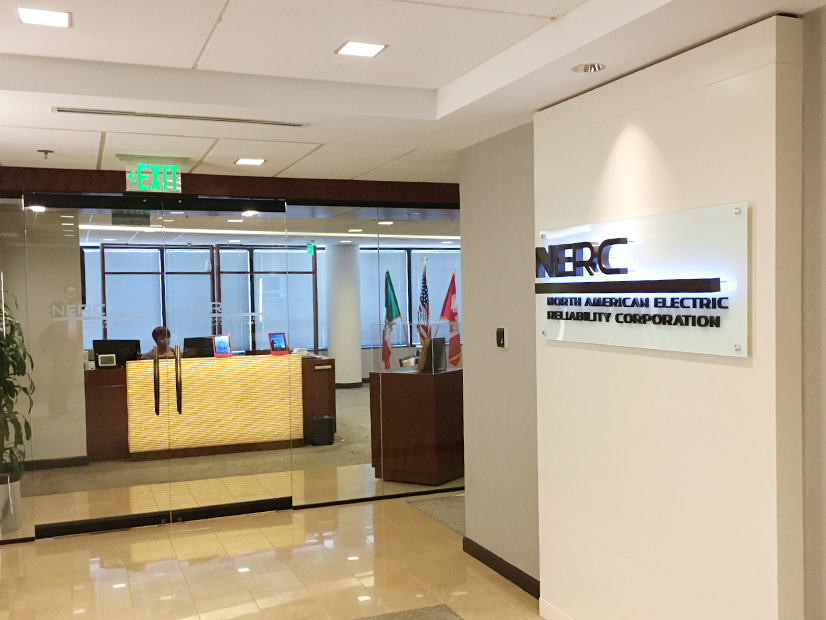FERC this week accepted a set of proposed changes to NERC’s Rules of Procedure to allow the ERO to register owners and operators of inverter-based resources while ordering a compliance filing clarifying whether its proposal will ensure that all IBRs are registered (RR24-2).
In addition, the commission withdrew an open proceeding to shorten the ERO’s timeline for its performance assessments from five to three years (RM21-12).
The ROP changes are the first step in NERC’s three-year plan to satisfy a November 2022 order in which FERC directed the ERO to register IBRs that are not currently required to register with it but that are connected to the grid and, “in the aggregate, have a material impact” on reliable operation. FERC approved NERC’s work plan in May 2023.
NERC submitted the ROP changes to FERC in March, requesting an expedited review period of 60 days. According to FERC’s order, NERC must finish modifying its registration processes by 12 months after the commission approved its work plan, identify owners and operators of relevant IBRs within 24 months and register them no later than 36 months.
The changes apply to Appendices 2, 5A and 5B of NERC’s ROP, with the most important updates coming to Appendix 5B. These changes will create a new category of generator owners, Category 2 GOs, comprising entities that own or maintain IBRs that “either have or contribute to an aggregate nameplate capacity of greater than or equal to 20 MVA, connected through a system designed primarily for delivering such capacity to a common point of connection at a voltage greater than or equal to 60 kV.”
A similar new category, Category 2 GOPs, will be created for generator operators that operate such equipment. Revisions to Appendices 2 and 5A were proposed to conform to this language.
In its order, FERC said it was generally satisfied with NERC’s proposal. However, the commission observed that the ROP revisions specifically referred to “inverter-based generating resources,” which might be construed to exclude battery energy storage systems because they store energy rather than generate it. As a result, FERC directed NERC to submit a compliance filing within 60 days explaining whether the ROP changes would apply to owners and operators of BESS resources and, if not, how the ERO plans to include these and any other IBRs that could be excluded.
In a webinar last month, NERC Vice President of Regulatory Oversight Howard Gugel said the ERO was currently using data from the U.S. Energy Information Administration and other sources to identify IBR candidates for registration. With FERC’s approval granted, NERC can also send a request for information on additional applicable resources to registered entities, starting with balancing authorities and transmission owners.
Assessment Proposals Faced ERO Skepticism
FERC’s decision to drop its proposal for shortening NERC’s performance assessment timeline comes three years after the commission first floated the idea in 2021.
At the time, the commission, under Chair James Danly, said a quicker turnaround would “provide better continuity” in FERC’s oversight of the ERO Enterprise and its ability to identify potential performance improvements more quickly.
The 2021 Notice of Proposed Rulemaking also suggested allowing FERC to request additional information beyond the statutory requirements of the performance assessment; NERC would have to honor any such requests submitted at least 90 days before the assessment’s publication date. In addition, the NOPR would have required the ERO to solicit recommendations from industry stakeholders for improvements to its “operations, activities, oversight and procedures.”
NERC and the regional entities objected to the proposals despite recognizing the commission’s interest in “effective and efficient communication, coordination and feedback objectives.” (See ERO Enterprise Resists FERC’s Assessment Proposal.) The ERO said a three-year assessment cycle might not allow it to conduct the same level of review that it currently does in its performance assessments.
NERC also pointed out that it already posts its draft performance assessments for public comment three months prior to submission, which should give stakeholders enough time to submit feedback. Regarding FERC’s proposal for requesting additional specific information, the ERO said it was open to such requests but 90 days was not sufficient notice.
FERC’s June 27 order acknowledged the ERO’s concerns and concluded that “modifying the periodicity or procedural requirements for the ERO performance assessments is [not] an efficient use of ERO or commission resources.” The commission emphasized that withdrawing the NOPR and terminating the proceeding was an exercise of its own discretion.
In a statement, NERC acknowledged the end of the proceeding and noted that it is currently preparing its assessment for the 2019-2023 period, a draft of which was posted for comment in April. (See NERC Makes Case for Recertification in Performance Assessment.)




